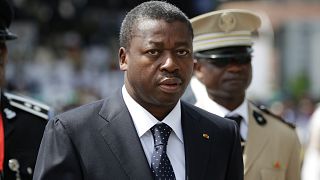Togo
Togolese will no longer elect their president.
Late Monday (Mar. 25), lawmakers adopted a new constitution introduced by members of the ruling party which transitions the West African nation from a presidential to a parliamentary system.
The country's opposition, which boycotted the last legislative elections in 2018 and recently denounced "irregularities" in the electoral census, is poorly represented in the national assembly.
One of the main changes brought by the new constitution is that lawmakers will elect the president of the republic for a single 6-year term.
The position of "president of the council of ministers" was also introduced. Its holder will have "full authority and power to manage the affairs of the government".
The president of the council of ministers will either be "the leader of the party which secures the majority during the legislative elections." Or the leader of the winning coalition of parties.
The president of the council of ministers will rule for a six-year term.
Mps will be elected by universal, direct universal suffrage, secret for a renewable term of six years.
The new Constitution was partly passed by lawmakers whose mandate was set to expire late last year.
It is unclear when the changes will come into force.
The next parliamentary election will be held on April 20th, concurrently with regional elections.
Some 4.2 million Togolese are registered to vote.
Togo's recent history has been dominated by the Gnassingbe clan which has ruled since 1967.












00:09
Republic of Congo presidential election set for March 15
01:09
Uganda's military chief gives opposition leader 48 hours to surrender to police
01:01
Burkina Faso: Damiba extradited by Togo
00:24
'Opposition was lucky,' Ugandan President Museveni says after securing seventh term
02:01
Tension grips Kampala as Museveni leads and residents await election results
01:32
With polls closed, vote counts are underway in Uganda presidential election